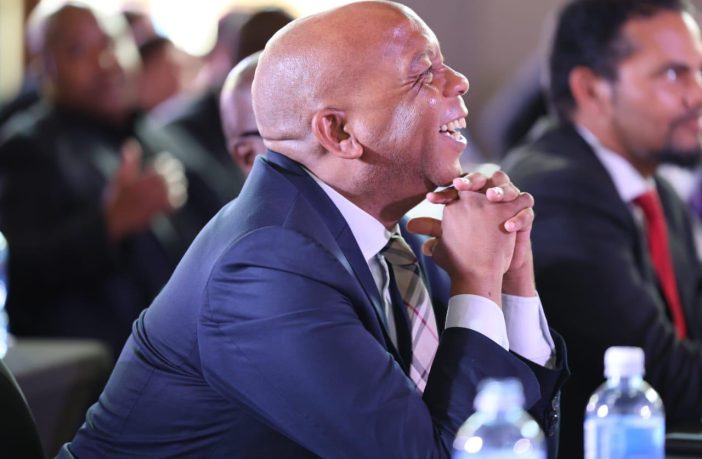- In a significant development, the High Court in South Africa has issued an order to join the Minister of Electricity as a fifth respondent in the ongoing #CancelCoal case.
- This decision follows a joinder application submitted by the applicants, citing the Minister’s pivotal role in determining new generation capacity.
- It is anticipated that the Minister may become the official responsible for issuing any fresh determination mandated by the court
The three applicants in the landmark youth-led climate constitutional litigation the African Climate Alliance (ACA), the Vukani Environmental Justice Movement in Action (VEM) and groundWork (gW), represented by the Centre for Environmental Rights (CER) brought the joinder application on 6 September 2023, in light of the President’s proclamation, granting the new Minister powers to determine that new generation capacity is required and the types of energy sources from which electricity must be generated.
These powers were previously held by the Minister of Mineral Resources and Energy (Minister of Energy). While the decisions being contested in this case were made by the Minister of Energy and do not directly involve the Minister of Electricity, any court order requiring fresh determination of the 2019 Integrated Resource Plan (IRP), will involve the Minister of Electricity. As a result,the Minister of Electricity now joins the Minister of Energy, NERSA, Minister of Forestry, Fisheries and Environment and the President of the Republic of South Africa, as government respondents in this case.
Why this matters: Climate impacts will disproportionately be experienced by present and future generations
The #CancelCoal case highlights the particular risk climate harms pose to children, young people and future generations in South Africa. Children are biologically less equipped to handle weather extremes and more susceptible to pollution-induced toxins. The impacts of the inclusion of new coal-fired power will be experienced disproportionately by children and future generations, who will live with the consequences for decades to come. The applicants’ court papers highlight that section 28(2) of the Constitution, place a particular obligation to consider the best interest of children and to assess the interests of future generations.
The case relies on a number of expert reports, including a report by Dr Ranajit Sahu which dispels the myth of clean coal. Sahu’s report finds that even in the best case scenario in which the cleanest available technology is used, large quantities of greenhouse gas emissions are unavoidable. Although the 2023 Integrated Resource Plan (IRP), with all of its flaws considered, does not include new coal capacity until 2030 under Horizon 1, Horizon 2, however, makes provision for energy generation from “cleaner coal technology”.
The concerns raised by the applicants in this case will greatly affect how the Minister of Electricity exercises his new powers. Therefore, his participation in these proceedings marks a crucial development in the case.
“The 2023 IRP, for all its problems, at least does not include new coal in horizon 1. This is sensible as we can avoid the unnecessarily expensive electricity that comes from coal, as well as the deadly air pollution and water use. We therefore do not understand why Minister Mantashe is persisting with this attempted procurement that will further delay a much needed Just Transition” said Promise Mabilo of Vukani Environmental Justice Movement in Action (VEM).
“As the case proceeds, it is important to note that the 2023 IRP, does not improve on the 2019 IRP, as it will not ensure cost-effective electricity supply, energy security, and upholding the constitutional right to an environment that is not harmful to health and well-being for present and future generations, and will exacerbate energy poverty. It’s particularly concerning that the Minister of Energy has not had regard to any of the reports in support of the #CancelCoal case which highlight the injustices of climate harms for children and youth”, says Sibusiso Mazomba, African Climate Alliance #CancelCoal Campaigner.
What happens next in the case?
The #CancelCoal applicants await the government respondents’ answering affidavits, in which they will need to respond to the arguments and allegations put forward by the applicants, as well as justify the decision to pursue new coal fired electricity generation.
Source: CER















